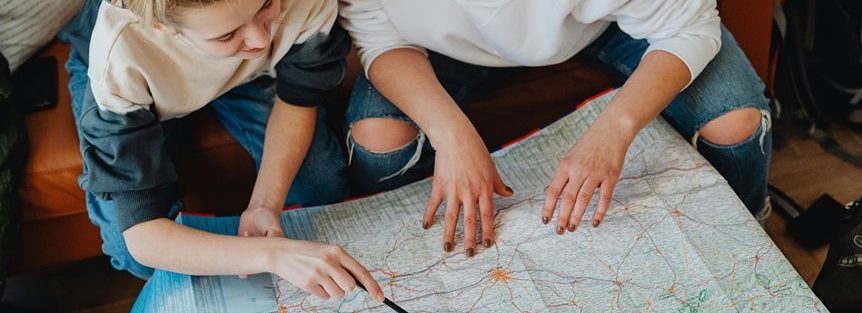At Novatia Consulting, we specialize in feasibility studies for adventure tourism in Nigeria, harnessing the sector's unique potential. Our approach combines rigorous risk assessments with market analysis to uncover viable revenue streams and community benefits. We recognize that sustainable practices are essential for preserving Nigeria's rich ecosystems while promoting local economies. By evaluating local infrastructure and engaging with communities, we provide data-driven insights that guide investment decisions. As the adventure tourism landscape evolves, understanding these dynamics is key. If you're curious about how we bring this expertise to life, there's plenty more to explore.
Key Takeaways
- Novatia Consulting conducts comprehensive feasibility studies to evaluate the financial viability of adventure tourism projects in Nigeria.
- They assess potential revenue streams and associated costs, providing a clear understanding of investment returns.
- Extensive risk evaluations address environmental and regulatory challenges, ensuring informed decision-making for adventure tourism initiatives.
- The firm utilizes data-driven insights combined with local expertise to tailor marketing strategies and service offerings for targeted audiences.
- Novatia Consulting emphasizes sustainable tourism practices, promoting community involvement and eco-friendly initiatives to benefit local economies and preserve the environment.
Overview of Adventure Tourism in Nigeria
Adventure tourism in Nigeria is an emerging sector that offers a wealth of opportunities for both local and international travelers. As we explore this vibrant landscape, we discover a rich tapestry of cultural attractions and adventure destinations that beckon to be experienced. Recent tourism trends indicate a growing interest in unique local experiences, from hiking in the Mambilla Plateau to exploring the stunning landscapes of Obudu Mountain Resort.
In this context, eco-friendly practices are becoming vital, ensuring that our adventure activities don't compromise the natural beauty we cherish. By prioritizing sustainability, we can enjoy thrilling experiences like zip-lining or river rafting while preserving Nigeria's breathtaking ecosystems.
Moreover, safety regulations are essential in fostering a secure environment for tourists. We should always consider the travel infrastructure, which is improving steadily, making it more convenient for adventurers to access remote areas. These advancements improve our overall experience, allowing us to focus on the excitement of our journeys.
As we embrace the potential of adventure tourism in Nigeria, we can look forward to a future filled with unforgettable experiences, rich cultural exchanges, and responsible travel practices that benefit both tourists and local communities alike.
Importance of Feasibility Studies
Feasibility studies serve as the backbone of successful adventure tourism ventures in Nigeria. By conducting these studies, we can gain vital insights into the financial viability of our projects. We need to understand whether our investment will yield a reasonable return and if the market can support our offerings. This foundational analysis not only highlights potential revenue streams but also pinpoints the costs associated with launching and sustaining our ventures.
Moreover, risk assessment is an essential component of any feasibility study. It helps us identify and assess the various risks involved in adventure tourism, from environmental challenges to regulatory hurdles. By understanding these risks, we can develop strategies to lessen them, making certain that our projects are sustainable and resilient.
In a rapidly evolving tourism landscape, failing to perform a feasibility study can lead to costly missteps. We must be proactive in our approach, utilizing data-driven insights to guide our decision-making. Ultimately, thorough feasibility studies enable us to make informed choices, synchronize our resources effectively, and maximize our chances for success in Nigeria's adventure tourism sector. Let's embrace this analytical approach to guarantee our ventures are not just dreams but viable realities.
Novatia Consulting's Approach
Over the years, Novatia Consulting has developed a unique approach to steering through the complexities of adventure tourism in Nigeria. We believe that a thorough understanding of both the market landscape and the inherent risks is vital for success. Our method begins with extensive risk evaluations, which help identify potential challenges and opportunities. By analyzing factors such as environmental sustainability and safety regulations, we guarantee that investors are fully informed about the conditions impacting their ventures.
Additionally, we focus on evaluating the investment potential of various tourism projects. This involves examining local infrastructure, community involvement, and environmental impact, which are essential for long-term viability. Our team utilizes data-driven insights combined with local expertise to provide a clear picture of the opportunities available in the adventure tourism sector.
At Novatia Consulting, we're committed to equipping our clients with the knowledge and tools they need to make informed decisions. Our approach not only improves the feasibility of projects but also fosters sustainable tourism practices that benefit local communities and the environment. Together, we can unlock the vibrant potential of adventure tourism in Nigeria.
Market Analysis Methods
Understanding the dynamics of the adventure tourism market in Nigeria requires a multi-faceted approach that integrates quantitative and qualitative analysis. By employing both methods, we can gain a thorough view of market trends, consumer preferences, and potential barriers to entry.
In our quantitative analysis, we'll collect and analyze numerical data, such as market size, growth rates, and demographic information. This statistical insight helps us identify key segments and assess their viability. For instance, determining the age groups most interested in adventure tourism allows us to tailor marketing strategies effectively.
On the other hand, qualitative research enriches our understanding of traveler motivations and experiences. Through interviews, focus groups, and surveys, we can uncover what drives individuals to seek adventure tourism in Nigeria, revealing insights that numbers alone can't provide. This helps us shape service offerings that resonate with the target audience.
Environmental Impact Assessments
As we explore the adventure tourism landscape in Nigeria, it is vital to contemplate the environmental implications that accompany this growing sector. Implementing Environmental Impact Assessments (EIAs) is significant for ensuring that our tourism initiatives do not compromise the integrity of Nigeria's rich ecosystems. By systematically evaluating potential environmental effects, we can identify strategies that improve sustainable practices.
These assessments help us safeguard biodiversity conservation efforts. For instance, understanding how different adventure activities might disturb local wildlife or habitats allows us to modify our approaches, ensuring that we minimize our footprint while still offering thrilling experiences for tourists. It's not just about attracting visitors; it's about responsible stewardship of the natural environment.
Moreover, EIAs can foster a collaborative spirit among stakeholders, encouraging tour operators, government entities, and local communities to work together towards sustainable tourism goals. This collaboration can elevate our reputation as a destination that prioritizes environmental health, ultimately attracting eco-conscious travelers.
Community Engagement Strategies
In the domain of adventure tourism, engaging local communities is vital for fostering sustainable practices that benefit both visitors and residents alike. To achieve this, we must prioritize community partnerships that enable local stakeholders and guarantee their voices are heard in the planning and development processes. By involving community members from the outset, we can create tourism experiences that reflect their culture, values, and needs.
One effective strategy is to establish forums where stakeholders can discuss their perspectives and provide input on proposed tourism initiatives. This not only builds trust but also encourages a sense of ownership among locals. Additionally, we should facilitate workshops that educate communities about the potential benefits of adventure tourism, such as job creation and infrastructure development.
Moreover, it's essential to identify and work together with local leaders and organizations that can champion these initiatives. Their involvement can greatly improve the legitimacy and acceptance of tourism projects. Ultimately, by fostering meaningful stakeholder involvement, we can create a tourism model that respects and uplifts communities, guaranteeing that both visitors and residents thrive in this vibrant sector.
Case Studies and Success Stories
Highlighting successful examples of adventure tourism can greatly illustrate the positive impact community involvement strategies have on local economies and cultures. For instance, let's consider the case of the Olumo Rock in Abeokuta, a unique destination that has transformed local livelihoods through tourism. By engaging local artisans and tour guides, the community has created cultural experiences that resonate with visitors, leading to increased revenue and job creation.
Another example can be found in the Yankari National Park, where eco-tourism initiatives have fostered a sustainable relationship between the local community and the environment. By involving residents in conservation efforts and tourism operations, the park not only preserves biodiversity but also enhances the cultural tapestry of the area. Visitors can immerse themselves in authentic experiences, from traditional dances to local cuisine, making their trips memorable while supporting the community.
These success stories demonstrate that when communities embrace adventure tourism, they don't just attract visitors to unique destinations; they also nurture cultural pride and economic resilience. As we analyze these cases, it becomes clear that the cooperative effort between local stakeholders is essential for sustainable growth in Nigeria's adventure tourism sector.
Future of Adventure Tourism in Nigeria
The future of adventure tourism in Nigeria looks promising, especially with the growing global interest in unique and authentic travel experiences. As we analyze current tourism trends, we see a clear shift towards adventure activities that resonate with travelers seeking more than just typical sightseeing. From trekking in the Mambilla Plateau to exploring the rich marine life along our coastline, Nigeria offers an array of experiences that cater to this demand.
Furthermore, as infrastructure improves and more local businesses recognize the potential of adventure tourism, we're likely to see an increase in both domestic and international visitors. This growth presents an opportunity for us to improve our marketing strategies, showcasing Nigeria's diverse landscapes and cultural heritage.
It's vital to invest in sustainable practices that protect our environment while promoting adventure activities. By doing so, we can guarantee that future generations will enjoy these natural wonders.
Frequently Asked Questions
What Specific Services Does Novatia Consulting Offer for Adventure Tourism?
When we consider the specific services offered for adventure tourism, market analysis and risk assessment stand out as essential components. By conducting thorough market analysis, we can identify key trends and opportunities, ensuring we make informed decisions. Coupled with an extensive risk assessment, we'll better understand potential challenges, enabling us to strategize effectively. Together, these services not only improve our understanding but also pave the way for successful adventure tourism ventures.
How Long Does a Feasibility Study Typically Take to Complete?
When we consider how long a feasibility study typically takes to complete, it's important to provide a realistic time estimation. Generally, a project timeline can range from a few weeks to several months, depending on the complexity and scope of the study. We should account for factors like data collection, analysis, and stakeholder consultations, which can influence the overall duration. Ultimately, a thorough assessment guarantees informed decision-making and project success.
What Qualifications Do Novatia Consulting's Analysts Possess?
When considering the qualifications of analysts, we've found that their expertise is essential in guiding complex tourism trends. Our analysts possess advanced degrees in fields such as economics and environmental science, ensuring a thorough understanding of market dynamics. They specialize in analyzing data and identifying emerging opportunities in tourism. With their extensive skill set, they're equipped to provide insights that drive informed decision-making and promote sustainable tourism development in diverse regions.
Are There Any Government Regulations for Adventure Tourism in Nigeria?
When we consider the regulations surrounding adventure tourism in Nigeria, it's clear that they play an essential role in shaping the industry. Government regulations impact safety standards considerably, ensuring that operators meet the necessary criteria to protect both tourists and the environment. By adhering to these regulations, we can create a safer and more sustainable adventure tourism experience. It's important for stakeholders to stay informed and compliant with these regulations moving forward.
How Can Clients Measure the Success of Their Adventure Tourism Projects?
To measure the success of our adventure tourism projects, we can focus on specific success metrics. These might include visitor numbers, customer satisfaction ratings, and revenue growth. Conducting thorough project evaluations at various stages helps us identify what's working and what needs improvement. By continuously analyzing these metrics, we'll guarantee our projects not only meet but exceed expectations, ultimately leading to sustainable growth and improved visitor experiences in the adventure tourism sector.







